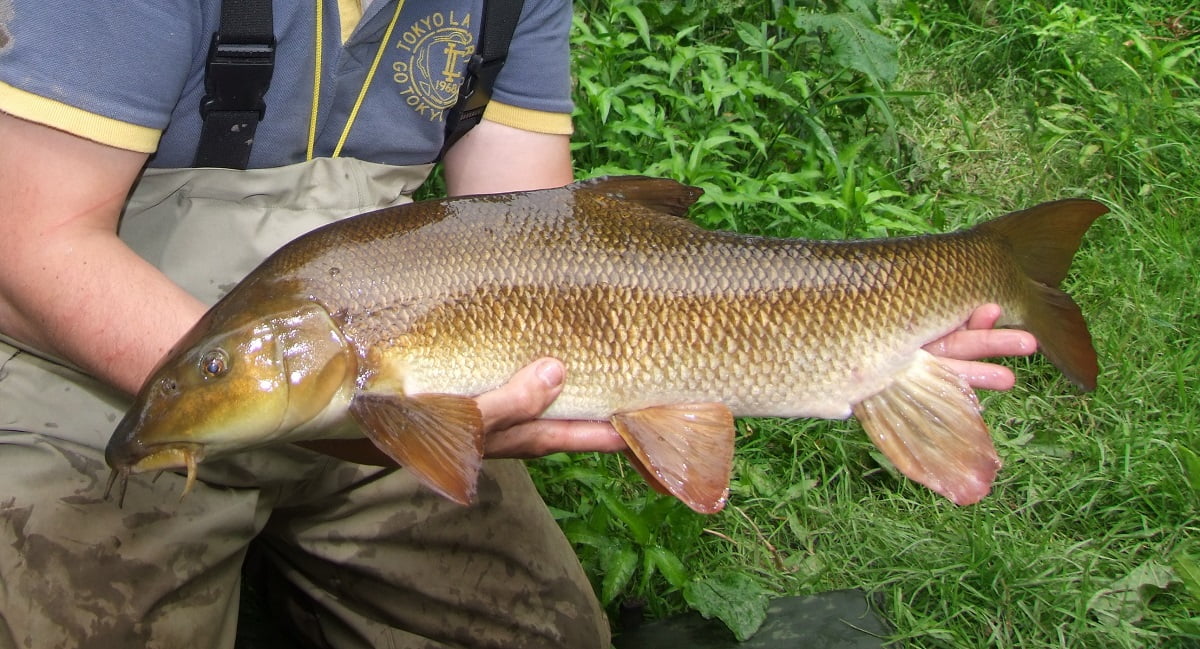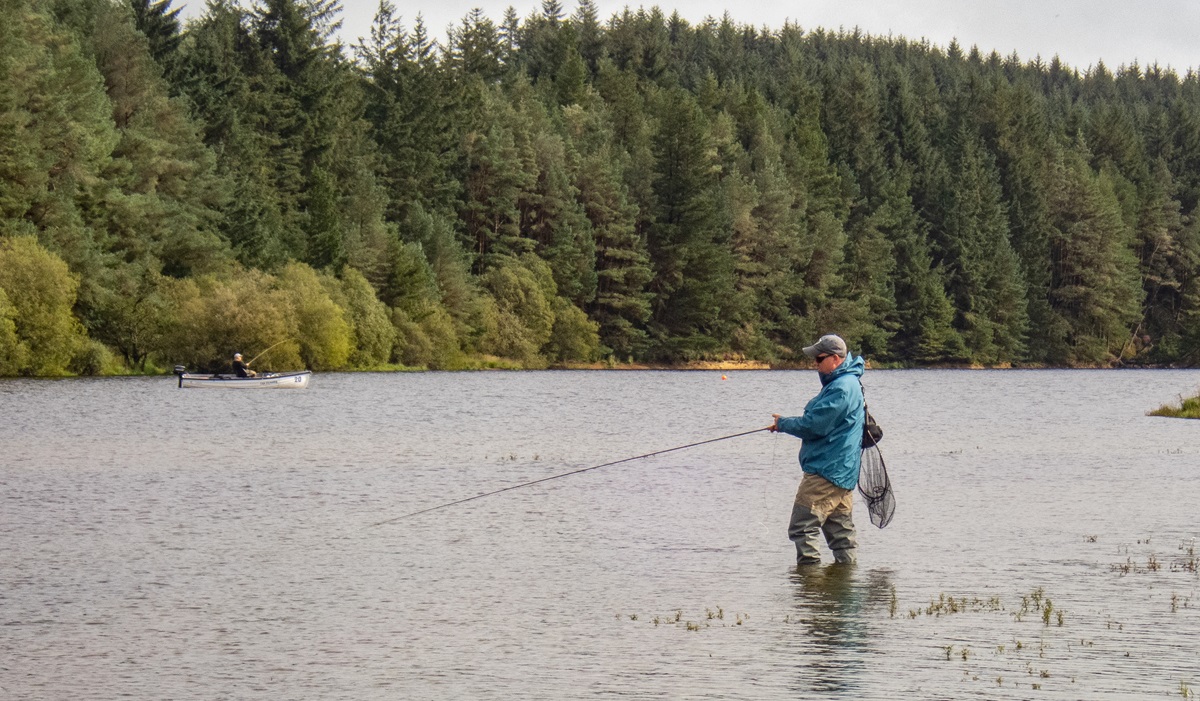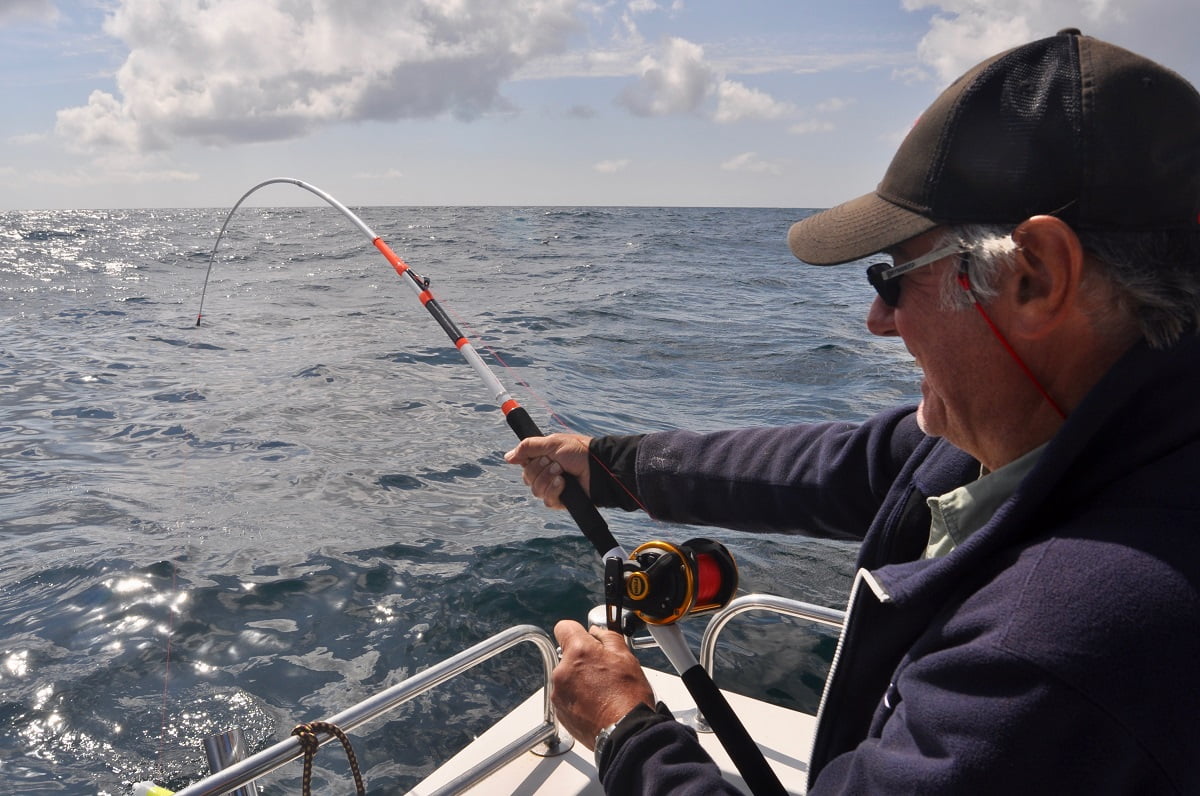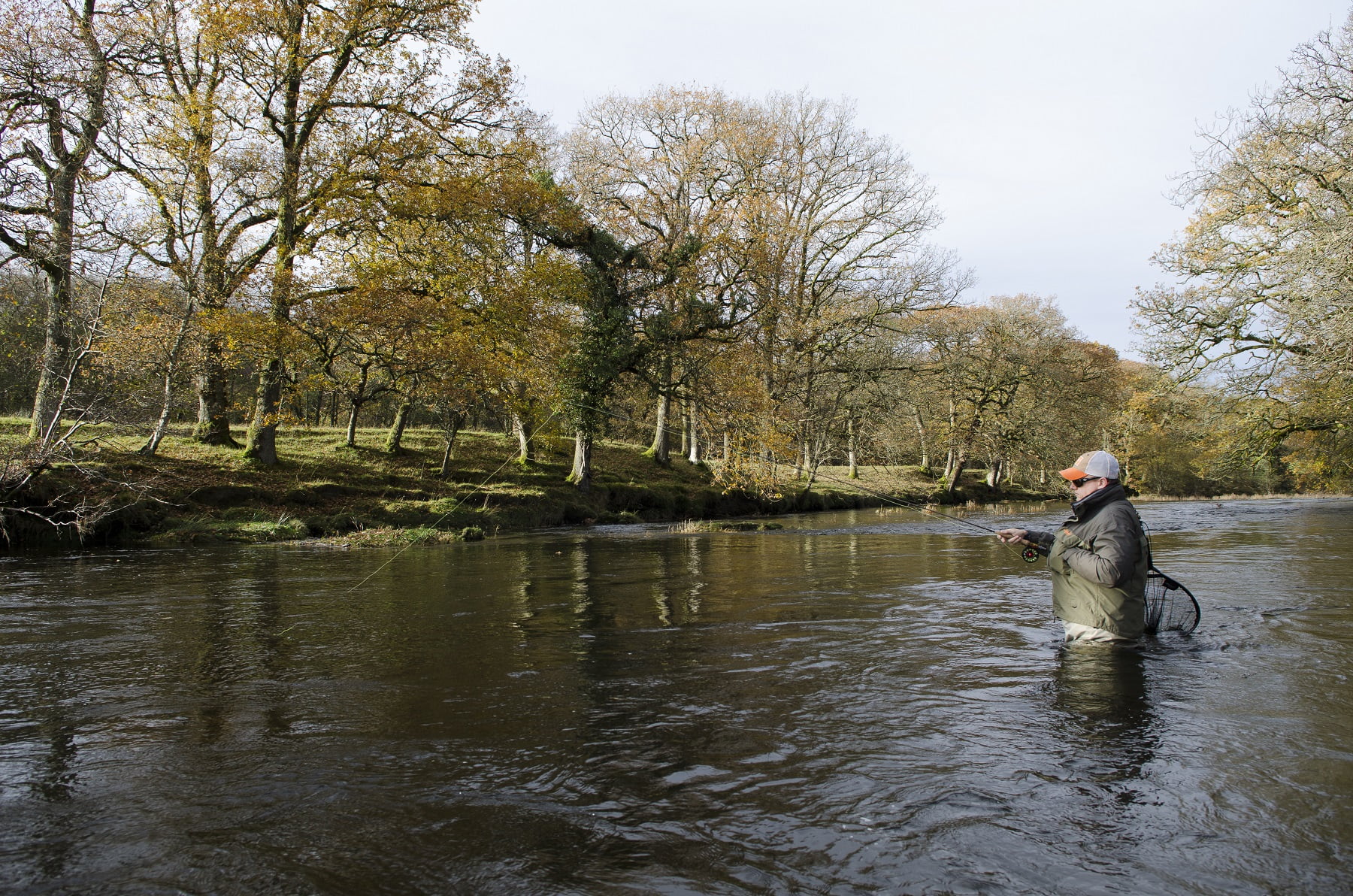12 Barbel fishing tips
Barbel are one of the strongest, powerful freshwater fish you will ever encounter. Such is the thrill of hooking a barbel, once you catch one you will never look back!
Barbel are thriving in several Welsh rivers, including the Wye, Taff, Dee, Rhymney and Severn – so it’s no wonder barbel fishing is becoming more and more popular. Here the Fishing In Wales team have put together their top barbel fishing tips – follow these 12 great fish catching tips and you won’t go wrong when barbel angling!
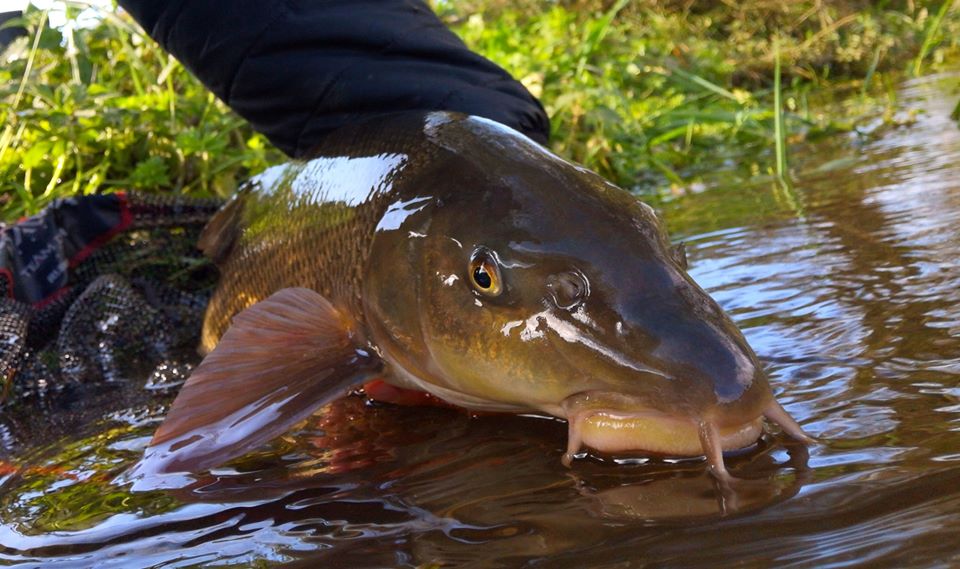
Tip 1: Be prepared
Bait up 2 to 3 swims before starting fishing. This gives the barbel time to settle and gives you options to move if you need to rest your first choice swim.
Tip 2: Keep moving
Be prepared to walk. The first and most accessible swims you come across may have been hammered, so be prepared to find un-fished water. The legwork involved often pays off!
Tip 3: Vary your bait
Never forget ‘old fashioned’ baits like sweetcorn and luncheon meat when barbel have been hammered on pellets. Another tactic for heavily fished barbel is to use just a single 8mm pellet.
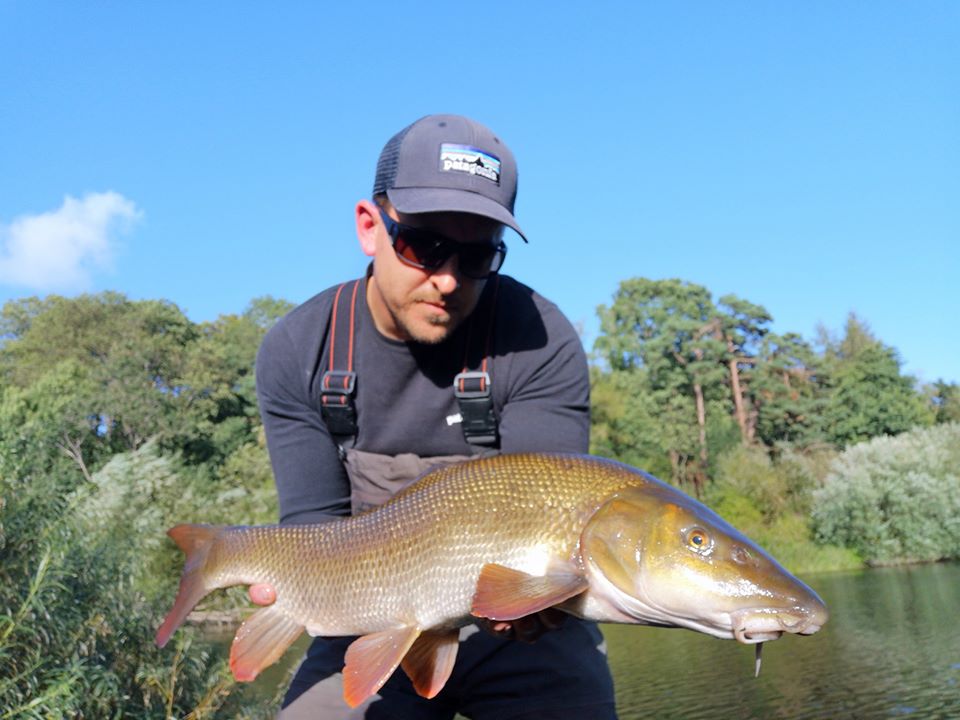
Tip 4: Pack your sunglasses
Don’t forget the polaroid sunglasses, these are essential for spotting barbel. Remember you won’t catch them if there not there. Spend more time looking for fish, and less time sitting waiting!
Tip 5: Don’t avoid weeds
Barbel love weedbeds. These areas are always worth paying a bit more attention to. Here the barbel can take cover and forage for crustaceans and insects.
Tip 6: Check the weight of your feeder
Make sure you use a feeder or lead that’s heavy enough to stay put in the flow and not move when its emptied or the PVA bag has dissolved. If it moves it will be fishing on a different line to the loose feed.
Tip 7: Try a long hook link
Use a long flourocarbon hook link. Barbel can associate a feeder with danger, so if fishing ultra-low clear summer conditions use fluorocarbon hook lengths of up to 6ft in the day time, pinned down with tungsten putty in to prevent barbel from spooking.
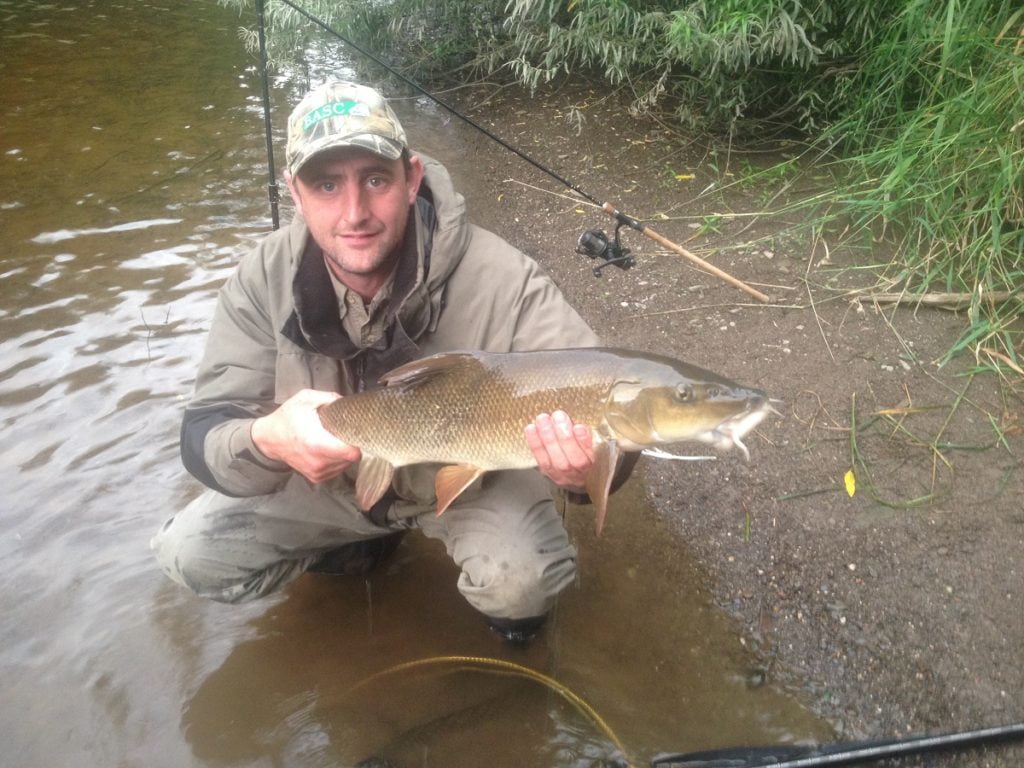
Tip 8: Re-bait and recast frequently
Don’t leave your rod out too long! Recast every 15 – 20 minutes. Halibut pellets break down within 20 minutes and will leach all of their flavour. Re-baiting and then refilling your feeder frequently is a good tip for best results.
Tip 9: Vary your pellet size
Use different size pellets in your feeder or PVA bag free offerings. Different sized pellets will break down at different times and keep the barbel grubbing around for longer in your swim.
Tip 10: Change with the conditions
Use a quick change link – so you can vary your lead weight depending on the strength of the flow; fish as light as you can without the flow moving your feeder or lead.
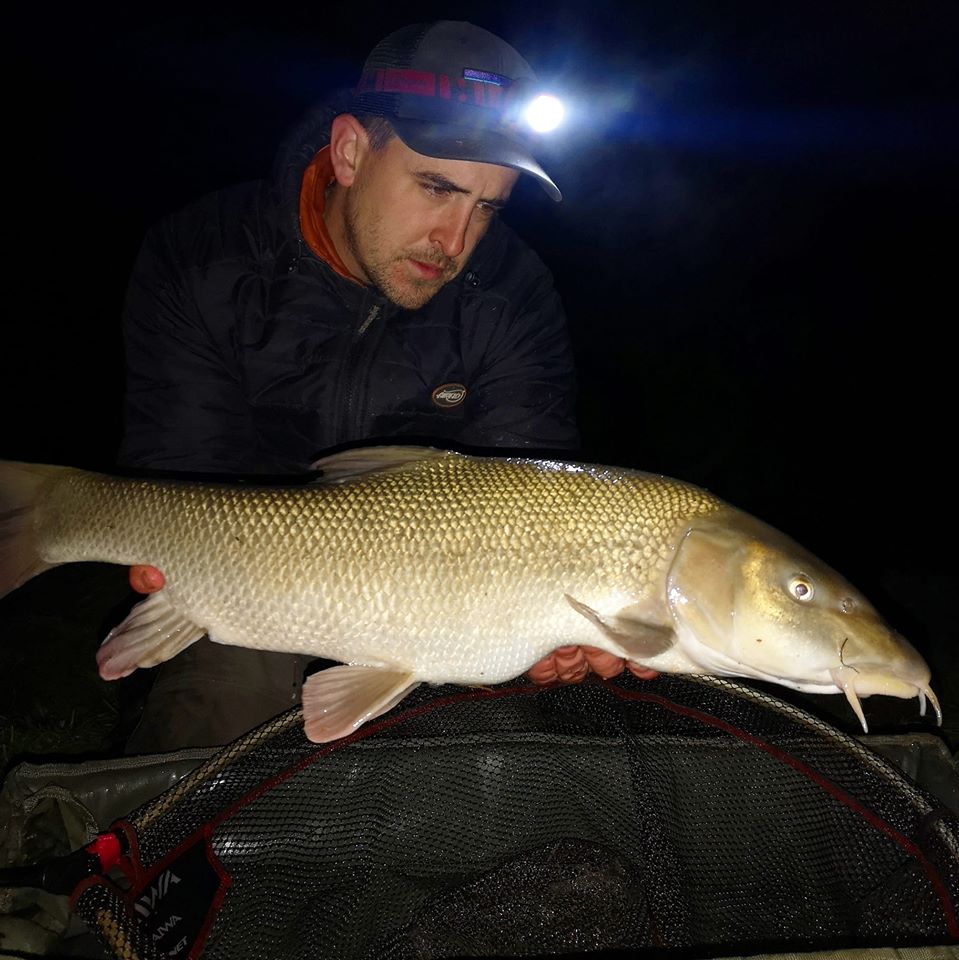
Tip 11: Try dawn and dusk
Barbel like to feed in low light. The more pressured the water, more likely they are to follow this pattern. Make an effort to fish early morning or late evening into the darkness if you are struggling to catch.
Tip 12: Rest a tired fish before release
Rest your fish. Once you have caught a barbel always make sure you rest the fish in the landing net prior to release. Barbel give their all in the fight, so make sure your catch is fully revived before you release.
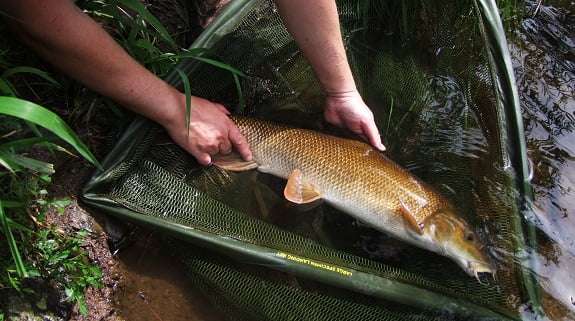
Images: Luke Thomas, Ceri Thomas & Tim Hughes
For more on barbel fishing in Wales, check out this article by Adam Fisher.
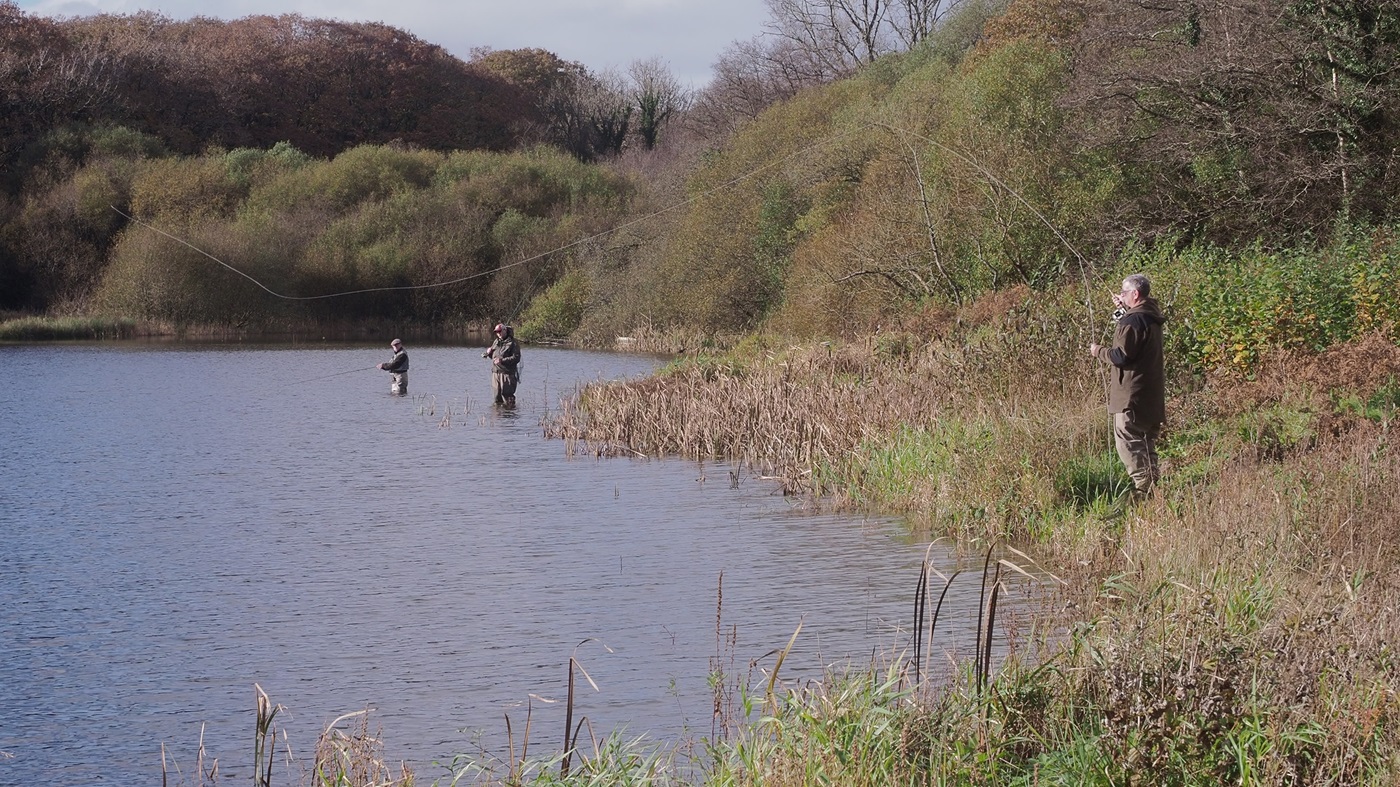
Beat the Winter Blues: Get Out and Fish!
As we drift through January it’s easy to feel the weight of the so-called “winter blues.” Monday, January 19th is…
Read More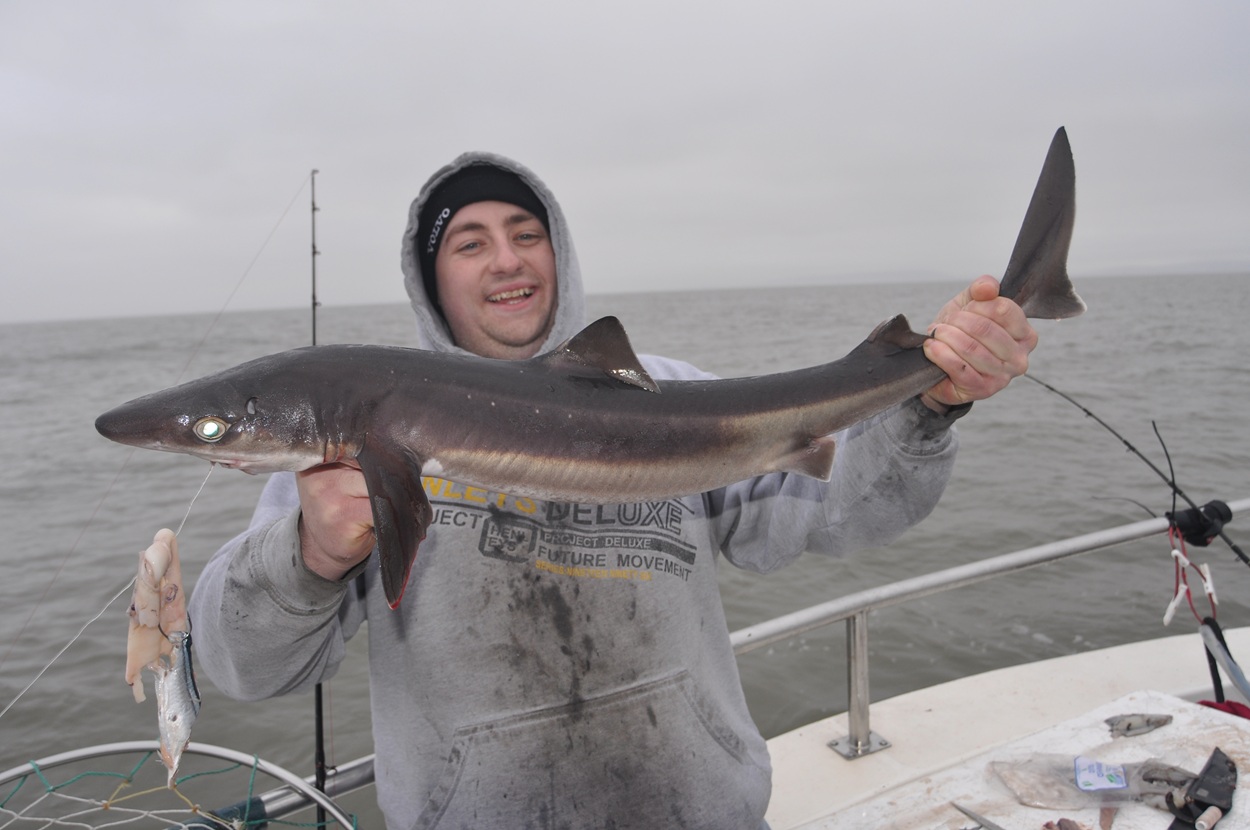
No Cod? Try These! Winter Sea Species to target in Wales
In this latest blog from sea angling writer Dave Lewis we take a look at the winter sea fishing species…
Read More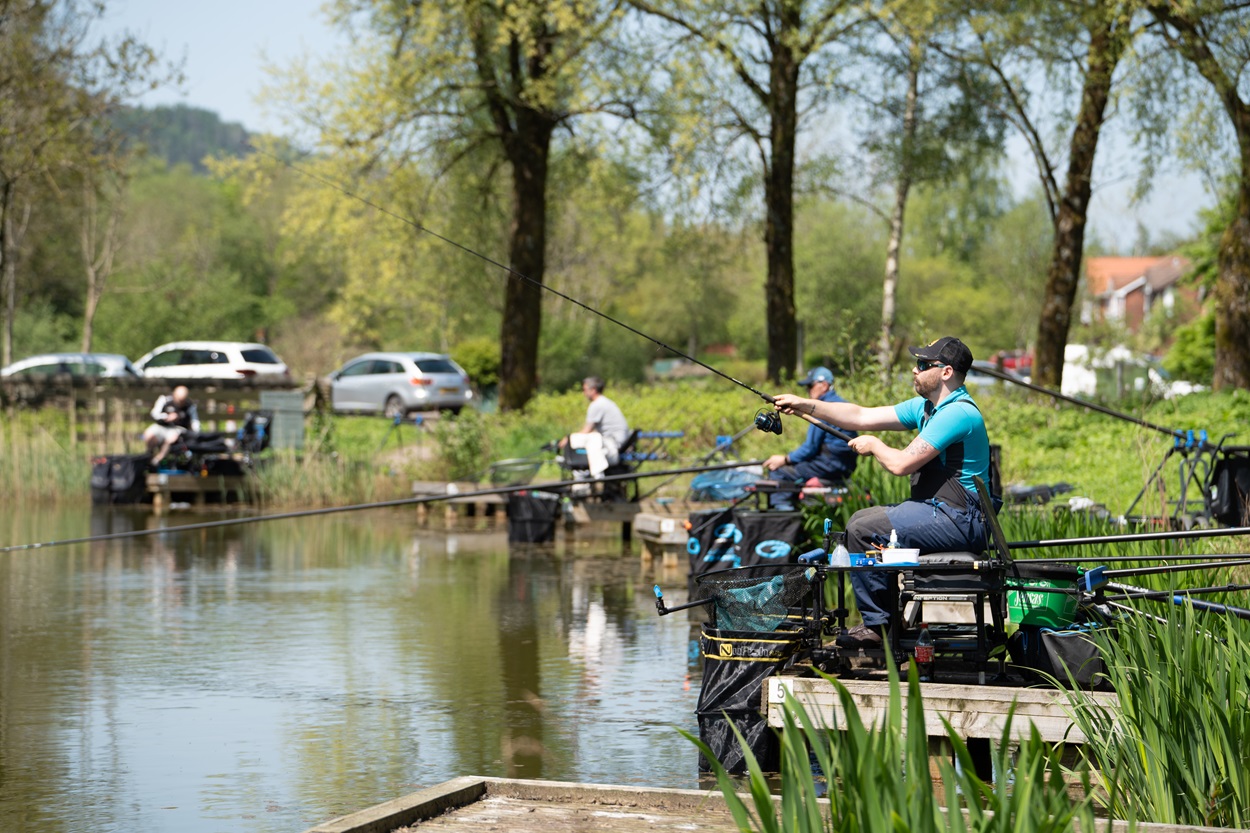
Five fishing resolutions for the New Year
Wales has so much to offer for 2026, with angling opportunities in abundance for seasoned fishers or newcomers to the…
Read More
